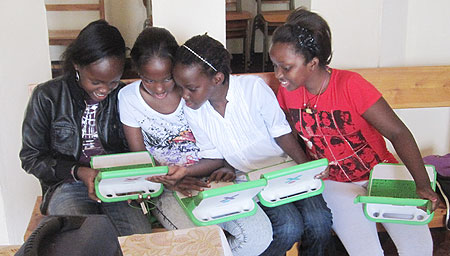Informal education is a general term used to describe education outside of a standard school setting. According to today’s world standard, formal education is highly regarded while informal education is abased. There are no cross cut factors that determine that the former is more important than the later.


Informal education is a general term used to describe education outside of a standard school setting. According to today’s world standard, formal education is highly regarded while informal education is abased. There are no cross cut factors that determine that the former is more important than the later.
By definition, formal education is classroom based—provided by trained teachers. On the other hand, informal education occurs outside the classroom. This could be in after-school or holiday programs, in community based organisations, museums, libraries or at home.
In Africa informal education is the oldest form of passing knowledge to learners. This was done through folk songs, poems, riddles and proverbs. It was the responsibility of older people to teach younger ones and this was usually done around a bonfire in the late evenings.
In a way, knowledge and basic life principles were passed on for generations without the chain being broken. This was enough for anyone to survive.
Nowadays the ancient style of informal education has evolved over the years to what we now call after-school or holiday activities and to an era whre kids have gone digital.
In the past children were informally educated by parents, guardians or grandparents on different life skills and morals.
However, due to the emerging Information Communication and Technology era, kids spend most of their time on computers, and no longer have time for informal education.
The digital generation gap between parents and children is the result of the extremely rapid rise of personal computing, the Internet, mobile applications, and coming next, biotechnology. Never before in the history of our species have we been faced with a situation where each generation is focused around technology.
This presents a major challenge to our civilization—in particular because of the effect it has on informal education. The tools that teachers grew up with are not the same tools (mobile devices) that the today’s students are using to learn and communicate.
Children are growing up in a world that is primarily focused around mobile devices and mobile applications. They have always lived with ever-present mobile access and social media. They are no longer concerned with building bridges to the legacy of the industrial world of their parents and grandparents; they are plunging headlong into an increasingly digital culture.
Children are addicted to the Internet, computer, and video Games. This obsession with computer games has made them too busy for informal education.
When a child first starts playing computer games parents mostly assume that it is harmless fun—an enjoyable activity for the child, however, the consequences are real.
Susan Uwimana, a 40-year-old parent with four kids said that as parents, they worry about the effect video games have on their children.
"Kids these days are addicted to the use of computers and they have less time for reading books, they no longer receive informal education,” Uwimana said.
She explained that, "children may develop an increase in emotional disorders and decline in verbal and memory performance because of constantly playing video games.”
Tito Rutayisire, 38 years is a parent of two who said that family interaction problems such as less positive parental relations has become common in today’s world because children are very busy on computers.
"Playing violent video games is a big risk that can develop into physically aggressive behaviour in children,” said Rutayisire.
The ancient style of informal education has evolved over the years to what we now call after-school or holiday activities. It is all still related to some school activity or something.
It is a complexity for so many to get back in touch with that original, classic and genuine form of educating. Almost everything studied today is based on a thesis that is usually assumed by someone who in most cases is not credible enough.
When the national fibre optic cable becomes operational next year in Rwanda, it will boost the ICT industry and enhance the speed of internet services. This will further slow down informal education because everybody will be able to access information they need online. Home work rules will also change—Rwandan children will be in position of doing their homework online.
On top of that the One Laptop Per Child (OLPC) programme which ensures that ICT is accessed by Rwandan children right from primary school and that every child in the school owns a laptop makes children busy on their computers and forget all about what they need to learn outside the internet.
At this point they spend most of their time playing games on computers over takes outdoor creativity that can only be learnt while playing games and interacting with other children in the neighbourhood.


